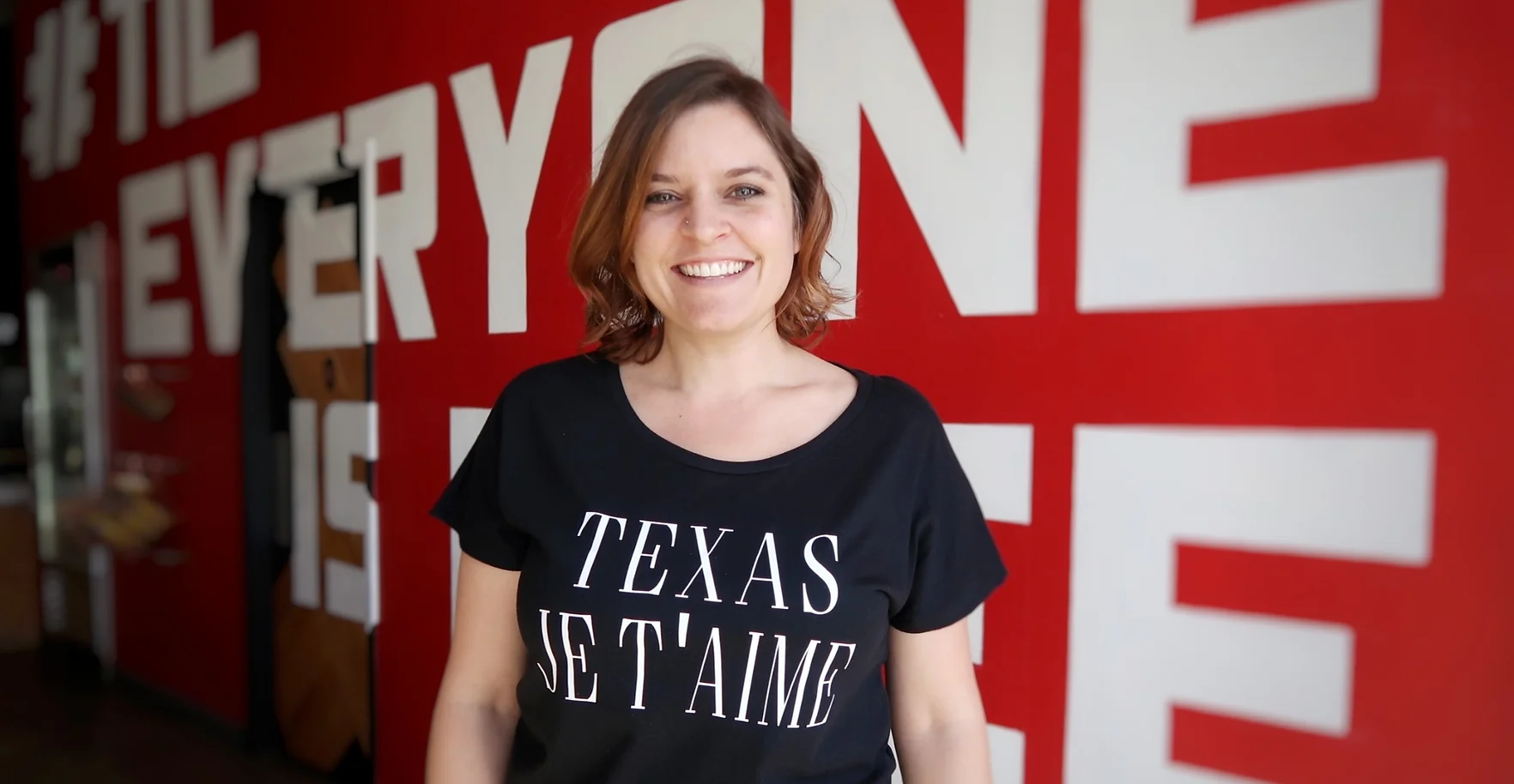Combining her expertise in education, her semi-serious dream of opening a cafe, and a life-long passion for helping others, Erica Raggett opened A 2nd Cup coffee shop in Houston, Texas in 2011. Equal parts Third-wave coffee shop and information and learning center, the shop sees patrons who come in for the coffee, which stands on its own, or the cause, with which the caliber of the coffee comes as a nice surprise. All of the shop’s profits go toward awareness and education about human trafficking, and programs to help rescue and aid victims.
A cafe with a cause? Or a charity that serves coffee?
“We get a pretty even mix of people who come and in are like, ‘You had really good reviews on Yelp,’ and those who come in and say, ‘I heard about your cause through my church,’” says Raggett. “We didn’t want people to come here for the cause and choke on the coffee,” she laughs. “We wanted people to come here to a nice atmosphere and good coffee, and educate them on human trafficking.”
"The community of Houston is phenomenally diverse, open, warm, and accepting. There’s a depth in the way people know each other, and an ease of life."

A teacher, a coffee enthusiast, a Texan convert, a humanitarian.
Raggett first moved to Houston in 2005 with Teach for America. She admits she had her reservations about moving to Texas — like much of America and the world, she had an idea of what she thought it would be like. But of course, Texas proved her wrong. “The community of Houston is phenomenally diverse, open, warm, and accepting,” says Raggett. “In Philly, you wouldn’t expect people to randomly wave and say hi like they do here.” “Houston can be fast-paced, but there’s something about the way we live that’s easy,” she continues. “There’s a depth in the way people know each other, and an ease of life.”
Unfortunately, many of the things that make Houston uniquely awesome are also some of the same factors that make it a uniquely opportunistic city for human trafficking, Raggett explains. Two international airports, an international port, and an international border serve as a useful camouflage for traffickers to transport international victims, as do big-ticket, international events that bring crowds into the city, further muffling any suspicious activity. “In such a diverse city, it’s easy for them to blend in,” says Raggett. “If we were, say, in Kentucky, and you heard someone speaking a foreign language, you would notice, but in Houston you would never even notice.” The major freeway I-10 also serves as a major corridor for transporting victims, specifically used to disorient local girls and women who are kidnapped and enslaved within their own city.
When Raggett first learned about human trafficking in Texas, “I could not conceive that it existed here,” she says. “ At the time I didn’t know what I would be doing, but I knew I had to do something.” She had always joked about opening a coffee shop, and always explored what people were doing with coffee in different cities, so when the time came, it was ultimately a no-brainer. The key, she says, is hiring the right people so that A 2nd Cup is successful as a quality coffee shop as well as an effective educational center and non-profit organization.


Making a difference, seeing a difference
Since opening A 2nd Cup, Raggett sees firsthand the change her efforts have made. “Before, almost no one had heard about human trafficking here, and now a lot of people know about it,” she says. “I love hearing stories about people who learned about red flags, and then saw them and acted on them.”
You can learn about more about human trafficking in Texas by visiting A 2nd Cup in The Heights, Houston, where you’ll find walls and shelves full of information, a calendar of educational and volunteer events, a community of people who care, and of course a top-notch cup of coffee that actively saves lives. And if you want to do more, you can.
“I am firm believer that everyone has something to give, whether it’s time, money, manual labor,” says Raggett. “If you can do some bookkeeping or some graphic design, that’s one less thing that the organizations would need to pay for.”
For starters, a cup of coffee goes a long way.
__
Learn more at a2ndcup.com





